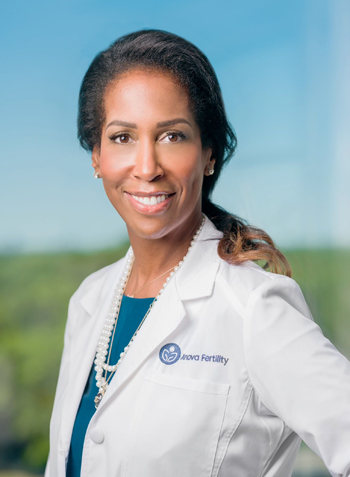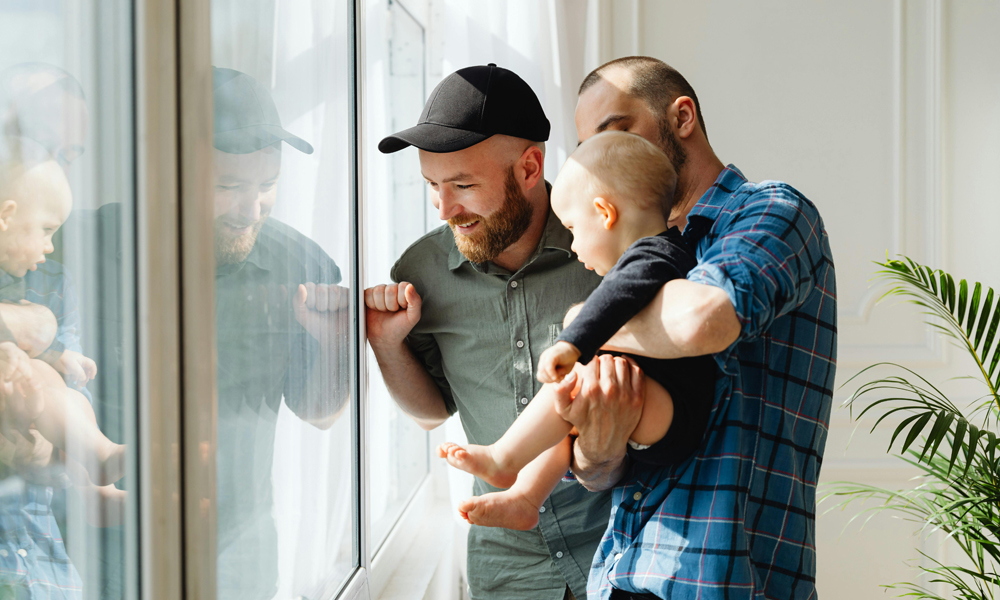Why inclusivity matters when you start a parenting journey…
Diverse representation is important for any industry, but it is especially important in health care. A lack of visibility and inclusiveness already puts many 2SLGBTQI+ patients on edge, and quality care is unlikely if someone feels they cannot share their entire medical history or feels they are not truly understood.
“The nuance of the impact of sexuality and gender on one’s health is often lost. It means that decisions are not made in the best interest of our community; they’re made in the interest of the majority,” says Jody Jollimore, executive director of the Community-Based Research Centre (CBRC). Founded in 1999, the Vancouver not-for-profit promotes the health of gay, bi, trans, two-spirit and queer men through research and intervention development.
The problem starts with a lack of data – studies and statistics – about the health and lives of 2SLGBTQI+ people. Just as traditional medical research has overlooked how women and people of colour might face different health issues, and require different medical approaches, than the “standard” white male patient, health researchers have only recently started acknowledging the different experiences of the 2SLGBTQI+ community.
It can become even more complicated when queer individuals or queer couples look to start a family. Building a family using assisted reproductive technology is never easy for any individual or couple, but queer people face unique challenges. While all potential parents must consider the ifs and whens of starting a family, most same-sex couples must also grapple with the how. That includes deciding whether to pursue adoption, in-vitro fertilization (IVF), intrauterine insemination (IUI), egg donation and gestational surrogacy – each of which comes with their own variations. As a growing number of same-sex couples turn to assisted methods like IVF and IUI to have children, many say they’re encountering entrenched inequality.
Variations in clinical practices and commitments to 2SLGBTQI+ family creation, and limited funding opportunities, are just some of the obstacles that queer individuals and same-sex couples have to navigate on the journey towards parenthood. In fact, in Canada no one has ever established a fertility treatment referral service for gay people before, because the approach to building family in fertility clinics has been geared to the heterosexual community. It’s something Dr. Marjorie Dixon is more than familiar with and something that she is passionate about changing. Dr. Dixon is the Founder, CEO and Medical Director of Anova Fertility & Reproductive Health, which operates four fertility clinics in southern Ontario.
“When I started in the fertility industry, the lack of diversity and inclusivity was evident,” says Dr. Dixon. “I aimed to create Anova Fertility as a welcoming space where all patients could find understanding and representation.”
As a proud member of the 2SLGBTQI+ community, Dr. Dixon is acutely aware of the specific needs and challenges in the community. Her path to founding Anova Fertility back in 2016 and supporting third-party assisted reproduction was deeply influenced by her own personal IVF journey and the realization of the need for more inclusive and diverse fertility care.
“My own journey through fertility and experiencing IVF personally has imbued me with a level of empathy and compassion that’s deeply rooted in my own experiences,” says Dr. Dixon. “Being in the patient’s shoes has shaped my professional approach, allowing me to connect with and understand our patients on a much more profound level.”
According to Dr. Dixon, providing comfortable access to the best fertility services in Canada is her way of serving her community and all pathways to parenthood.
Over the past decade or two, the thinking around 2SLGBTQI+ health has expanded well beyond sexual health, which traditionally targeted gay men, to now encompass multiple concerns affecting a diverse queer community. Studies have captured how addiction, tobacco use, depression and suicide disproportionately affect us. However, there has been little research or education on the journey that same-sex and queer parents go on when they decide to create a family.
“Reflecting on the inception of Anova, I recall how, 20 years ago, most fertility clinics were not 2SLGBTQI+ friendly – a trend that, unfortunately, persists in many places even today,” say Dr. Dixon. “This lack of inclusivity extended beyond just the 2SLGBTQI+ community; it also affected those who were racialized. As a healthcare provider, I often saw a disconnect because so few patients could see themselves in their doctors – very few of us represented the diverse patient landscape we were serving. This disparity was a significant factor in how I envisioned and built Anova Fertility, aiming for a clinic that truly mirrors the diversity of Canada.”

Taking the steps to parenthood
The first step in providing that individual-focused education is exploring what options are available. Those options can be confusing and may not be what couples expect. Some of the stereotypes about the difficulty of starting a queer family no longer hold up, according to Dr. Dixon. With more than 20 years in the field, and eight years since she founded Anova, she’s seen many changes in the technology and policies available to provide queer couples with access to fertility treatments.
On the medical side, improvements in endocrinology and screening not only make the process more reliable, but allow doctors to, for example, look for genetic mutations like those that cause cystic fibrosis. Even improvements in communication technology have contributed to streamlining the journey. For couples in small towns seeking to create a family through surrogacy, for example, many of the necessary meetings and interviews can be done remotely through videoconferencing, something we wouldn’t even have thought of a few years ago.
Medical advances also help provide more choices. Techniques like reciprocal IVF, which is possible when both partners have eggs and/or uteruses, allow one partner to form an embryo created with donor sperm, while the other partner receives that embryo and carries the pregnancy, a path that can increase the feeling of a shared experience.
Finances, of course, are also a consideration, and it can be especially daunting when there is no guaranteed outcome. Employee benefit plans are increasingly likely to cover fertility treatment for queer couples – although, in Canada, the median amount of coverage is about $3,500 while a standard IVF process can cost $25,000 (surrogacy costs even more). Considering the commitment required for parenthood – queer or otherwise – every little policy change can make a difference. We do know that the federal government has promised to reform the Employment Insurance system to provide a new parental benefit to parents who adopt or who grow their families with the help of a surrogate.
There have also been ongoing lobbying efforts to make coverage more equitable for 2SLGBTQI+ families across the country, which means that over time, benefits packages are likely to become more inclusive. “Anova is working on benefits companies,” says Dr. Dixon. “We’re telling them: ‘If you guys are saying you’re not discriminating against our community, then how are these amounts fair?’”
Thousands of same-sex couples are raising children in this country, according to government data, and increasing numbers are looking to grow their families, advocates say. Yet many fertility clinics remain focused on straight couples: one report, according to the New York Times, suggests that self-identifying 2SLGBTQI+ people make up just between five per cent and 10 per cent of fertility-clinic patients in the United States. In Canada, the stats are echoed. In fact, it was less than two years ago that a Nova Scotia dropped a consultation fee for same-sex couples and single people seeking fertility help.
“The design and ethos of Anova are deeply influenced by my personal experiences as a patient,” says Dr. Dixon. “Every aspect of Anova’s environment is crafted with the patient in mind and draws on not just my journey but also the shared experiences of friends, who like many felt their voices were unheard and their needs unconsidered in their fertility journey.”
Message received. Finding a clinic with practitioners who can speak the language of queer couples in a judgment-free way can be a key factor in the journey.
The family you chose you create one.” Contact Anova now, Your friends in Fertility to begin your planned journey to parenthood, please visit anovafertility.com.






POST A COMMENT